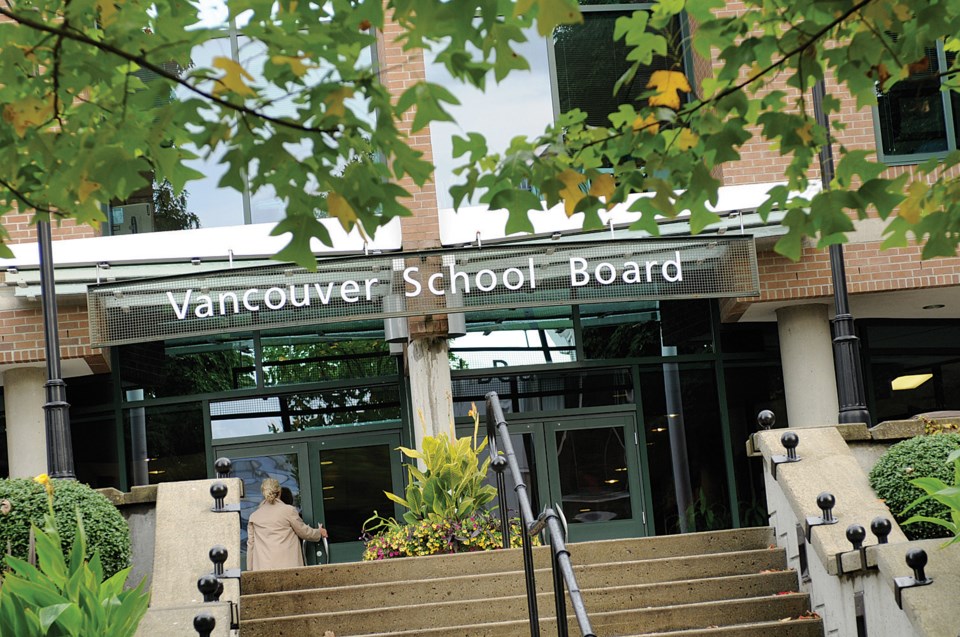The belief that poverty is increasing in Vancouver is one reason behind a comprehensive review of the Vancouver School Board’s inner city school program.
School trustees forwarded a motion last April that called for the regular five-year review to be more wide-ranging than the review completed in 2009. Trustees want to see improved coordination and integration of the inner city school and provincially funded programs. The review will explore what services and programs are required to support the success of vulnerable students and where and how these should be offered.
The VSB implemented the inner city school program in 1988, starting with four elementary schools and one annex. It funds the program from its operating budget and the amount has not changed since at least the last review, said associate superintendent Maureen Ciarniello.
Twenty-five years later, the program supports 14 elementary and secondary schools with additional staff that include teachers, youth and family workers, neighbourhood and staff assistants. Staffing for the inner city school program has remained essentially unchanged for 25 years, but following the 2009 review, different schools received different configurations of staff based on size and need.
Money from the provincial government supports breakfast and lunch programs, school-based support workers and counselling for at-risk children and youth. Principals can apply for small grants through the provincial government program for services such as an art or music therapist.
Acting associate superintendent Valerie Overgaard has been contracted to lead the review.
Overgaard will strike a task force that will include representatives from agencies that include the Ministry for Children and Family,
Vancouver Coastal Health and Vancouver Aboriginal Child and Family Services Society.
Directors of instruction, school administrators, school staff, provincial government staff, parents and representatives of other agencies that work in the schools are to be interviewed about what works well, what needs improvement and who needs to be involved.
Marcia Toms, a retired Vancouver teacher of 34 years and a member of the Justice Not Charity Working Group, says she and other members of that group want in-depth consultations. “It’s very important to solicit active contributions from a wide group of parents and staff at each school, and that their contributions be based on their own experience and their own articulation of what they need,” she said, specifying the board needs to reach parents beyond parent advisory councils.
Following focus groups and forums scheduled for November and December, according to the memo discussed at an education and student services committee meeting Sept. 11, the task force will develop recommendations to be discussed at a public forum in January. Revised recommendations would go to the board in February.
Justice Not Charity worries adequate consultation won’t be possible in such tight timelines but the group also wants improvements made in time for the board’s budget deliberations.
Ciarniello said the board could take a staggered approach to implementing changes. “We’re not necessarily rushing to this next budget to have a final piece in place,” she said. “The work of this will inform that budget to some extent and may inform a two-year process.”



